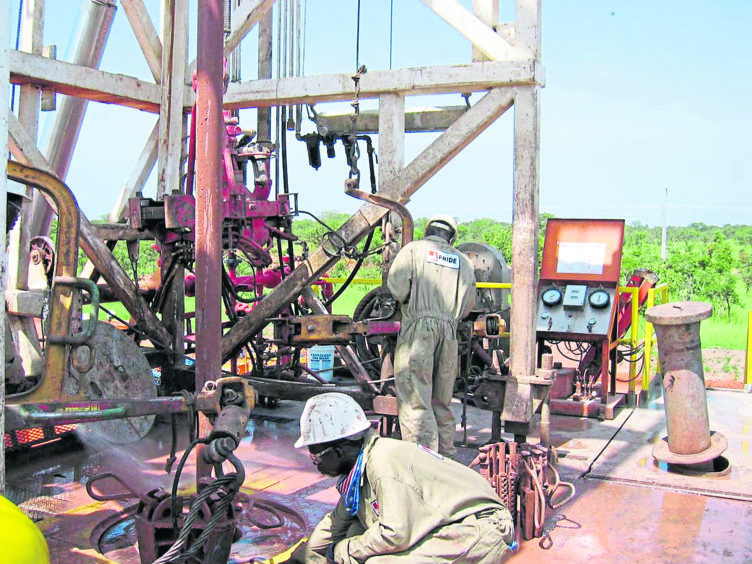
Chad asked Glencore to suspend payments on its oil-for-cash loan this year, a move that could prove a precedent for private creditors worried about being dragged into a global debt-relief push for poor countries.
After securing a $61 million debt waiver in June, sponsored by the Group of 20, the central African nation sent a letter to the world’s biggest commodity trader and other private lenders, asking them to allow debt freezes, according to two people familiar with the matter. This would suspend more than $100 million in payments in 2020, according to the International Monetary Fund.
The G-20 launched the Debt Service Suspension Initiative in April, a program aimed at helping countries hit hard by the pandemic by waiving billions of dollars in repayments until the end of the year. Bondholders and banks have so far resisted G-20 calls to join creditor governments in the freeze, citing legal obligations.
Payment freeze
The vast majority of the 73 eligible borrowers didn’t contact private creditors asking for a freeze on repayments for fear it could halt future access to financing. Chad, a landlocked country in the southern fringes of the Sahara, and the tiny Caribbean island of Grenada both applied for the relief.
The two nations have asked for comparable terms from private lenders, according to a July 14 document seen by Bloomberg that was prepared by the World Bank and the IMF. Grenada asked bondholders for a payment freeze in May, but backtracked shortly afterward.
A Glencore spokesman declined to comment. Chad’s finance ministry and its debt management office didn’t respond to Bloomberg requests seeking comment.
Chad’s request for debt-payment relief could be a litmus test for private lenders, under pressure to participate in efforts to avert a slew of defaults from developing economies. It also sheds light on opaque resource-backed loans, once popular with African and Middle Eastern governments that are now struggling to repay them.
“This could persuade other countries to take similar action,” said Iolanda Fresnillo, senior policy and advocacy officer on debt justice for the European Network on Debt and Development. “However, this also depends on the response from Glencore and other private creditors as it would be seen as a precedent in relation to private sector responses.”
Oil crash
Glencore, backed by banks, lent the government and state-run Société des Hydrocarbures du Tchad (SHT) nearly $2 billion between 2013 and 2014 to plug a budget deficit and buy a stake in an oil project, according to the IMF. A sharp drop in international benchmark Brent crude from 2014 forced the country to restructure the loan twice, most recently in 2018. Still, the IMF has warned that the deferral mechanism may not be enough for Chad to ward off a debt crisis next year if oil prices fall further.
The restructured loan allows Chad to delay as much as $75 million in amortization repayments if oil falls bellow $42 a barrel. Brent crude plunged to a 21-year low in April, buckling under the pressure of a glutted market and as nationwide lockdowns to curb the spread of the virus cratered demand. Crude futures in New York also made an unprecedented plunge into negative territory in the same month. On Friday, Brent futures for November settlement were trading at about $43 a barrel.
Payment freeze
Chad, one of the world’s poorest countries, repaid $95 million of the loan last year through oil shipments, according to a finance ministry report. The country is due to repay $115 million in 2020, according to IMF projections.
Although Chad has continued to repay the loan with oil, claims over the debt traded in the secondary market are priced at default levels of between 40 and 55 cents on the dollar, said a person familiar with the matter. However, it’s unlikely that Glencore and other creditors will accept a payment freeze beyond what is stipulated in the current loan contract, the person said.
Chad used cattle to repay debt to Angola last year and is in talks with Equatorial Guinea to settle another loan with fresh meat.
An oil producer since 2003, the nation has also been hit hard by multiple price crashes since 2014, by recurrent droughts and the spillovers of a Islamist insurgency in neighboring countries that has brought in half a million refugees. The country spends a 10th of its income paying external creditors, twice what it allocates to health care, according to Jubilee Debt Campaign, a London group that advocates relief for poor countries.
Opaque agreements
Other countries with limited access to debt markets have turned to loans from China and trading houses, which could be repaid with oil or minerals. Such agreements are often hidden from public view, absent from international debt statistics and removed from government books, according to a study by the Natural Resource Governance Institute.
However, resource-rich countries are now struggling to repay these loans after the pandemic slashed global demand for commodities. Glencore restructured a $500 million oil-for-cash loan to Kurdistan in northern Iraq earlier this year, after the semi-autonomous region struggled to make repayments as crude crashed. Angola is in talks with China to delay payments on billions of dollars of oil-backed loans.